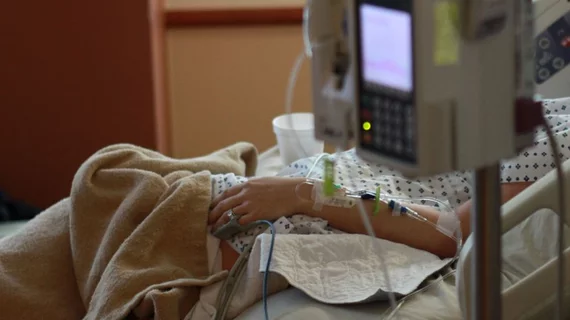Machine-learning method could improve treatment for ICU patients
Princeton researchers have developed a machine-learning method that could reduce the number of tests and improve the timing of critical treatments for intensive care unit patients. And the method could find its way into ICU care soon.
The method was able to helped clinicians intervene faster when a patient’s condition began to deteriorate, according to the study, which was co-authored by Princeton graduate students Li-Fang Cheng and Niranjani Prasad.
“Data-driven approaches such as the one proposed by Cheng and co-authors, when combined with a deeper insight into clinical workflow, have the potential to reduce charting burden and cost of excessive testing, and improve situational awareness and outcomes,” Shamim Nemati, PhD, an assistant professor of biomedical informatics at Emory University who was not involved in the study, said in a statement.
The research was recently presented at the Pacific Symposium on Biocomputing on Jan. 6 in Hawaii. The study focused on four types of blood tests: lactate, creatinine, blood urea nitrogen and white blood cell testing, which are all used to diagnose kidney failure or sepsis in ICU patients. Researchers used a dataset of more than 6,000 ICU patients.
Using an approach known as reinforcement learning, the researchers’ algorithm encourages a test order based on how informative it is at a given time, meaning there’s a "reward function" for administering a test if there’s a higher probability that a patient’s state is significantly different from the last test. There’s also a greater reward if the test result is likely to suggest a clinical intervention for the patient.
However, the method also penalizes for a test’s monetary cost and risk to the patient. The approach treats the issue of medical testing “like the sequential decision-making problem it is, where you account for all decisions and all the states you’ve seen in the past time period and decide what you should do at a current time to maximize long-term rewards for the patient," Prasad said.
Researchers found the method would have yielded more information than the actual testing regiments that clinicians typically followed. It also showed the algorithm could have reduced the number of lab tests ordered for white blood cell testing as much as 44 percent.
The researchers plans to work with data scientists on Penn Medicine’s Predictive Healthcare Team to introduce this method in the clinic.
“This is one of the first times we’ll be able to take this machine learning approach and actually put it in the ICU, or in an inpatient hospital setting, and advise caregivers in a way that patients aren’t going to be at risk,” Barbara Engelhardt, PhD, associate professor of computer science at Princeton, said in a statement. “That’s really something novel.”

